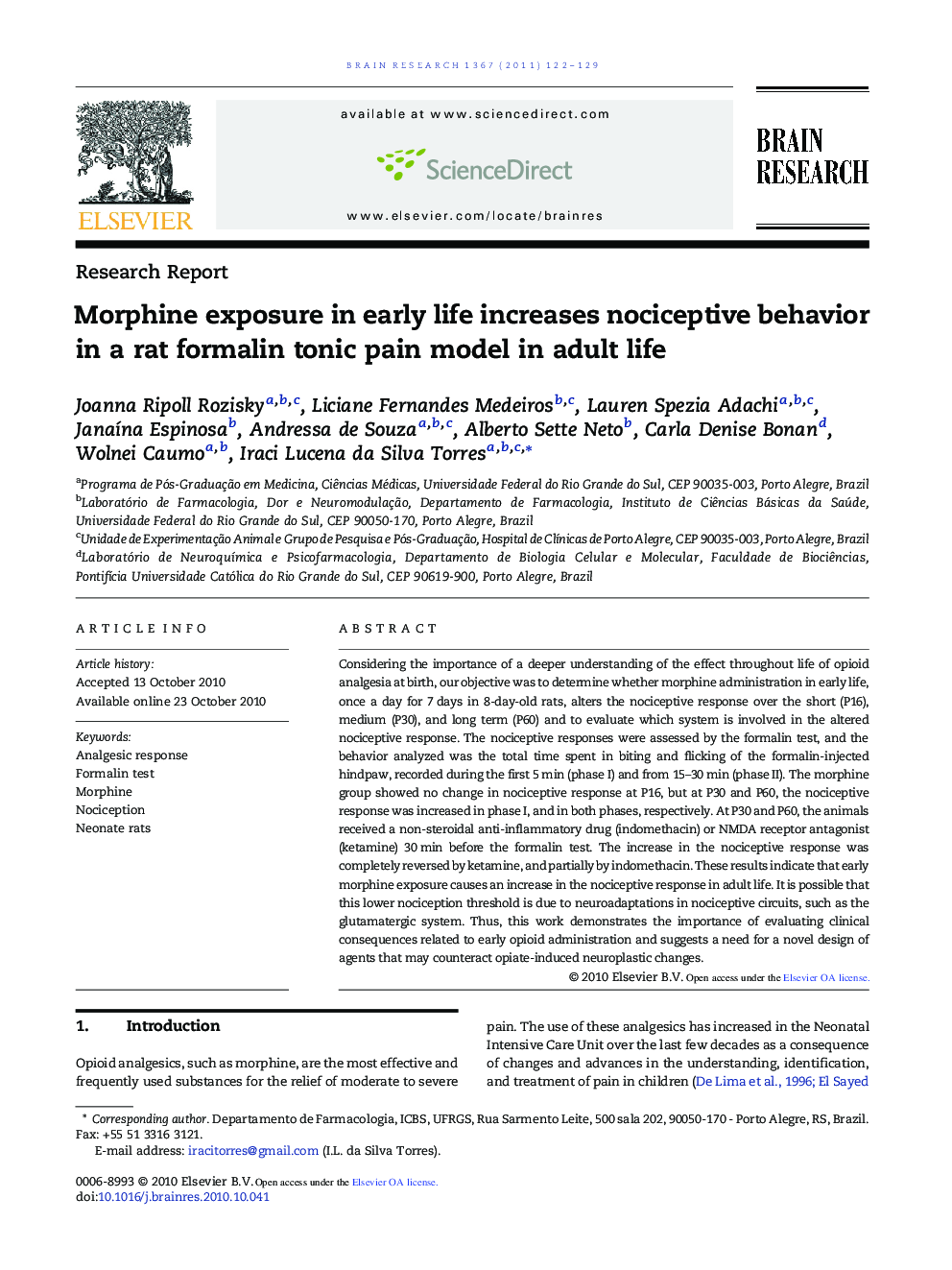| کد مقاله | کد نشریه | سال انتشار | مقاله انگلیسی | نسخه تمام متن |
|---|---|---|---|---|
| 6265314 | 1614072 | 2011 | 8 صفحه PDF | دانلود رایگان |

Considering the importance of a deeper understanding of the effect throughout life of opioid analgesia at birth, our objective was to determine whether morphine administration in early life, once a day for 7Â days in 8-day-old rats, alters the nociceptive response over the short (P16), medium (P30), and long term (P60) and to evaluate which system is involved in the altered nociceptive response. The nociceptive responses were assessed by the formalin test, and the behavior analyzed was the total time spent in biting and flicking of the formalin-injected hindpaw, recorded during the first 5Â min (phase I) and from 15-30Â min (phase II). The morphine group showed no change in nociceptive response at P16, but at P30 and P60, the nociceptive response was increased in phase I, and in both phases, respectively. At P30 and P60, the animals received a non-steroidal anti-inflammatory drug (indomethacin) or NMDA receptor antagonist (ketamine) 30Â min before the formalin test. The increase in the nociceptive response was completely reversed by ketamine, and partially by indomethacin. These results indicate that early morphine exposure causes an increase in the nociceptive response in adult life. It is possible that this lower nociception threshold is due to neuroadaptations in nociceptive circuits, such as the glutamatergic system. Thus, this work demonstrates the importance of evaluating clinical consequences related to early opioid administration and suggests a need for a novel design of agents that may counteract opiate-induced neuroplastic changes.
Research HighlightsâºMorphine exposure in early life increases nociceptive response at P30 and P60. ⺠This response was reverted by NMDA antagonist receptor. ⺠The low nociception threshold may be due to adaptations in the nociceptive circuits. ⺠Morphine exposure in early life induces adaptations in the glutamatergic system.
Journal: Brain Research - Volume 1367, 7 January 2011, Pages 122-129